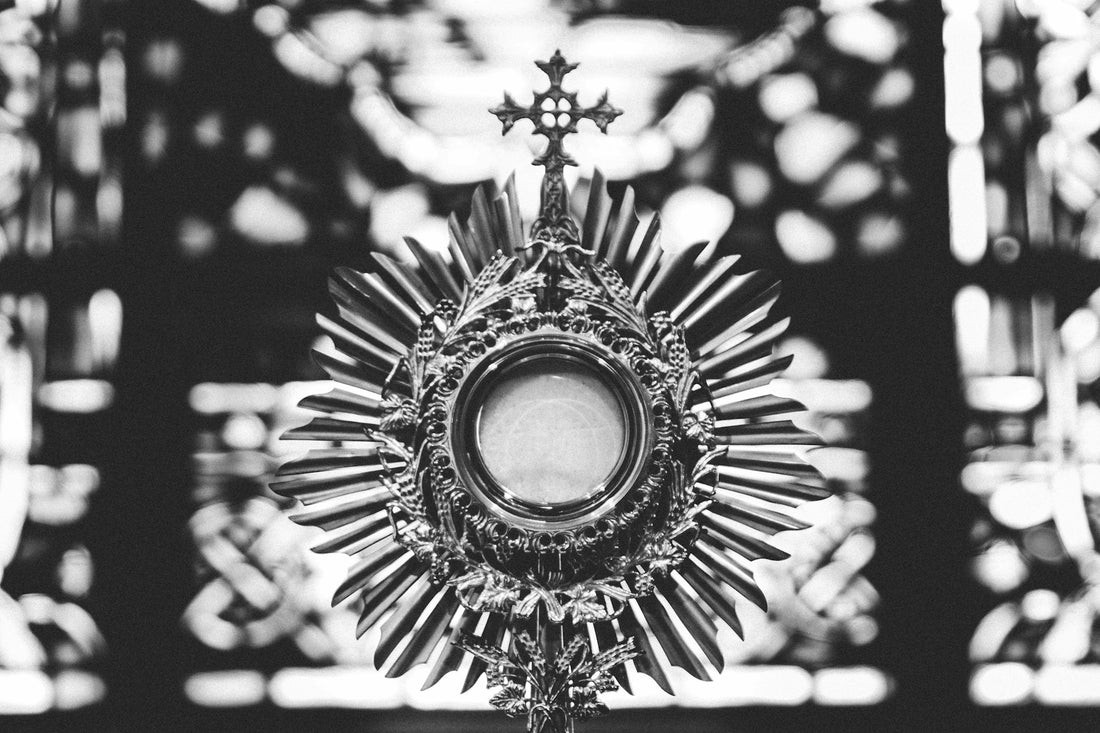
How Does Occultism Differ from Other Religions?
Share
How Does Occultism Differ from Other Religions?
Occultism, a term steeped in intrigue and mystery, always invites curiosity and questions about its unique nature in the world of spirituality.
In this article, we explore the distinctive characteristics that set occultism apart from mainstream religions. In contrast to traditional religions, Occultism isn't constrained by strict doctrines or centralised authorities. Instead, it flourishes through personal exploration, a wide range of practices, and a focus on first hand experience.
While some might associate it with satanic rituals and creepy symbols, occultism encompasses a vast array of spiritual traditions, each with its own philosophies and techniques for attaining higher states of consciousness.

By Unknown author - Own work, Public Domain, Link
What Is Occultism and How Is It Defined?
The term "occult" refers to knowledge of the hidden or knowledge that is not visible to the average mind. It often involves practices that aim to access or understand mystical, supernatural, or magical forces, phenomena, or spirits. Historically, the occult has been associated with the search for deeper spiritual truths beyond the material world, including astrology, alchemy, divination, and various forms of magic. These practices and beliefs have been a part of human culture across different societies and eras, often existing on the fringes of mainstream religious and scientific thought.
How Do the Core Beliefs of Occultism Differ from Mainstream Religions?
The core beliefs of occultism diverge from those of mainstream religions in several key ways. Occultism places a strong emphasis on personal agency and empowerment, encouraging individuals to actively engage with spiritual forces rather than relying solely on external intermediaries like priests or religious leaders.
Additionally, occult practices often involve the exploration of hidden or esoteric knowledge, seeking to uncover deeper truths about existence and the universe. This contrasts with many mainstream religions, which tend to rely on established scriptures or teachings. While organised religions often have structured rituals and dogmas, occultism is more fluid, allowing practitioners to customise their practices to suit their unique spiritual journeys.
Understanding these distinctions offers valuable insights into the diverse range of beliefs and practices that shape our world.
What Types of Rituals Are Unique to Occultism?
Occultism boasts a distinctive repertoire of rituals. Central to this practice is ceremonial magic , involving meticulously crafted rituals to summon specific energies or entities. These ceremonies often integrate symbolic tools, gestures, and invocations to forge a link between the practitioner and the spiritual realm.
Divination , another hallmark of occultism, employs techniques like tarot reading , scrying , or rune casting to gain insight into the hidden forces shaping our lives. Additionally, sigil magic stands out as a quintessential occult practice, encompassing the creation and charging of symbolic symbols to manifest desired outcomes.
These specialised rituals serve as potent instruments for practitioners to navigate the enigmas of existence and tap into latent potentials within themselves and the universe.

By Anonymous author from the Middle Ages, original possibly by Maslama al-Majriti - https://wdl.org, Public Domain, Link
Are There Sacred Texts in Occultism?
Unlike mainstream religions with singular sacred texts like the Bible or Quran, occultism encompasses a diverse array of writings from various traditions. While it draws inspiration from ancient texts like the Hermetic Corpus , the Kybalion , and the Picatrix , occultism doesn't adhere to a fixed canon. Instead, practitioners often explore a wide spectrum of literature, including grimoires, alchemical treatises, and arcane manuscripts.
Modern occultists may find guidance in the works of influential figures like Aleister Crowley 's "The Book of the Law" or Eliphas Levi's "Transcendental Magic." This plurality allows for a dynamic and evolving approach to spirituality, where individuals can select texts that resonate with their unique spiritual journey.
How Does Occultism Approach the Concept of Divinity?
Again, occultism differs from conventional religions in its interpretation of divinity. Rather than adhering to established notions of monotheism or polytheism , occult beliefs about the divine tend to be more nuanced and personalised. Some occult traditions perceive divinity as a universal force or energy that permeates all existence, while others may view it as an ineffable cosmic intelligence.
Additionally, occult practitioners may engage in practices like invocation or evocation to establish a more direct connection with these higher powers. This flexible and experiential approach to divinity allows for a wide range of beliefs and experiences within the occult community, setting it apart from religions with more rigid dogmas about the nature of the divine.

By user:Tomisti - [1], Public Domain, Link
What Is the Role of Ethics and Morality in Occultism?
Ethics and morality in occultism are often subjective and individualised, differing from the prescriptive codes found in many organised religions. Rather than following a set doctrine, occultists tend to emphasise personal responsibility and self-discovery in determining what is right or wrong.
The guiding principle often centres around the concept of " As Above, So Below ," which implies that one's actions have consequences in both the spiritual and physical realms. This encourages practitioners to be mindful of their intentions and the potential impact of their practices.
While there are shared values of respect, empathy, and the pursuit of knowledge, the absence of a universally defined moral code distinguishes occultism from religions with more standardised ethical frameworks.
How Do Occult Practices Relate to Mysticism?
Occult practices and mysticism share a common thread in their pursuit of deeper spiritual understanding and connection to the divine. Both involve seeking experiences beyond the realm of ordinary perception. However, they differ in their approaches. Mysticism often involves direct communion with the divine through prayer, meditation, or contemplation, seeking a union with a transcendent reality. In contrast, occult practices encompass a broader range of techniques, including rituals, symbols, and ceremonial magic, often aiming to unlock hidden knowledge or manipulate spiritual forces.
While both paths seek to transcend the mundane, occultism tends to employ a more structured and methodical approach, incorporating various tools and practices to achieve spiritual insights.

By Unknown - Book 4, Part 2 (1912). See deletion discussion.
Originally uploaded to Commons by Commons user Dnaspark99 as Commons:File:Aleister Crowley, Magus.png, but now deleted., PD-US, Link
Is Occultism Organised or Individualistic?
Occultism encompasses a diverse spectrum of practices, and its organisational structure varies widely. Some occult traditions, like Thelema or the Hermetic Order of the Golden Dawn , follow structured systems with defined rituals, hierarchies, and specific doctrines. These organisations often provide a framework for practitioners to progress through levels of initiation and study.
However, as previously mentioned, occultism can also be highly individualistic. This flexibility allows for a rich tapestry of approaches within occultism, ranging from highly organised groups to solitary practitioners, all united by a shared quest for hidden knowledge and spiritual transformation.
How Does Occultism View the Afterlife?
Occultism significantly differs from conventional religions in its perspective on the afterlife too. While many mainstream religions offer distinct doctrines about an afterlife, occult beliefs are remarkably diverse. Some occult traditions propose reincarnation , where the soul undergoes a cyclical process of rebirth, shaped by past actions. Others suggest that the afterlife is a realm of spiritual existence, where consciousness persists in a different form.
Additionally, certain occultists may hold that the afterlife is a subjective experience, contingent on an individual's beliefs and consciousness. This wide spectrum of beliefs reflects occultism's emphasis on personal exploration and interpretation, allowing practitioners to develop their own unique understandings of existence beyond the physical realm.
Are There Sects or Denominations Within Occultism?
Occultism lacks formal sects or denominations. Instead, it encompasses a diverse array of practices, beliefs, and philosophies that often operate independently or within small, specialised groups. While there are recognised traditions within occultism, such as Thelema or Hermeticism , they do not adhere to the structured denominational frameworks found in mainstream religions.
Rather, occult practitioners tend to follow their own paths, adapting practices to align with their personal beliefs and experiences. This decentralised nature allows for a rich tapestry of perspectives and approaches, emphasising individual exploration and autonomy.

By William Blake - The William Blake Archive, Public Domain, Link
How Does Occultism Interact with Science?
Occultism and science often inhabit separate realms of inquiry, but their interactions can be complex. While science relies on empirical evidence, experimentation, and rational inquiry, occultism delves into the realms of mysticism, hidden knowledge, and spiritual exploration. This can lead to a perceived dichotomy between the two.
However, some individuals navigate both domains, finding ways to harmonise scientific understanding with occult practices. For example, renowned figures like Sir Isaac Newton were deeply involved in both scientific pursuits and occult studies.
Some practitioners aim to integrate both perspectives, viewing them as complementary approaches to understanding the complexities of existence. This nuanced relationship continues to spark discussions about the intersections of empirical inquiry and spiritual exploration within the broader context of human knowledge.

A group of Freemasons in ceremonial dress, 1902 - Rare Book and Special Collections Division/Library of Congress, Washington, D.C.
What Is the Role of Symbolism in Occultism Versus Other Religions?
Symbolism holds a distinctive role in occultism. In occult practices, symbols are laden with layers of esoteric meaning and are often utilised as conduits for tapping into higher realms of consciousness. These symbols serve as bridges between the material and the spiritual, acting as focal points for meditation, invocation, and ritualistic ceremonies.
In contrast, while symbols also hold significance in other religions, they tend to convey more explicit or widely recognised meanings associated with specific deities, concepts, or moral principles.
How Do Occultists View Other Religions?
Occultism often embraces a pluralistic perspective towards other religions, as occultists tend to see the diverse array of religious traditions as different facets of a universal truth, each offering unique insights into the nature of reality and spiritual development. This perspective encourages an open-minded approach, allowing practitioners to draw inspiration and wisdom from various faiths without rigidly adhering to any single doctrine.
Unlike some organised religions that may claim exclusive access to ultimate truth, occultists often value the richness of religious diversity, viewing each tradition as a potential source of esoteric knowledge and spiritual growth. This inclusive stance towards other religions distinguishes occultism from certain faiths that may assert their beliefs as the sole path to salvation or enlightenment.
What Are the Common Misconceptions About Occultism?
Occultism has long been shrouded in mystery and surrounded by misconceptions. One common misunderstanding is the notion that it primarily involves dark, malevolent practices. In reality, many practitioners are focused on constructive things like personal growth, enlightenment, and positive transformation.
Another misconception is that occultists engage in ritualistic activities solely for supernatural or otherworldly purposes. While rituals are indeed a key aspect, they often serve as tools for self-discovery. Additionally, some assume that occultism is disconnected from mainstream society and incompatible with modern life. In truth, many occultists seamlessly integrate their spiritual practices with everyday responsibilities, showing that occultism is not an exclusive or isolating pursuit, but rather a dynamic and adaptable approach to spiritual exploration.
Learn everything about the occult with our article 'what is the occult?'.













